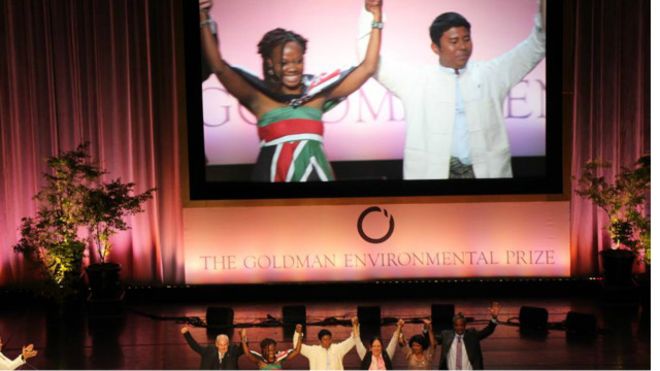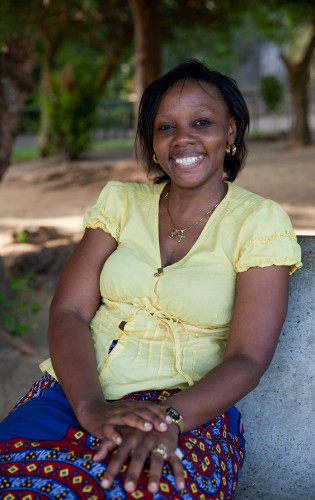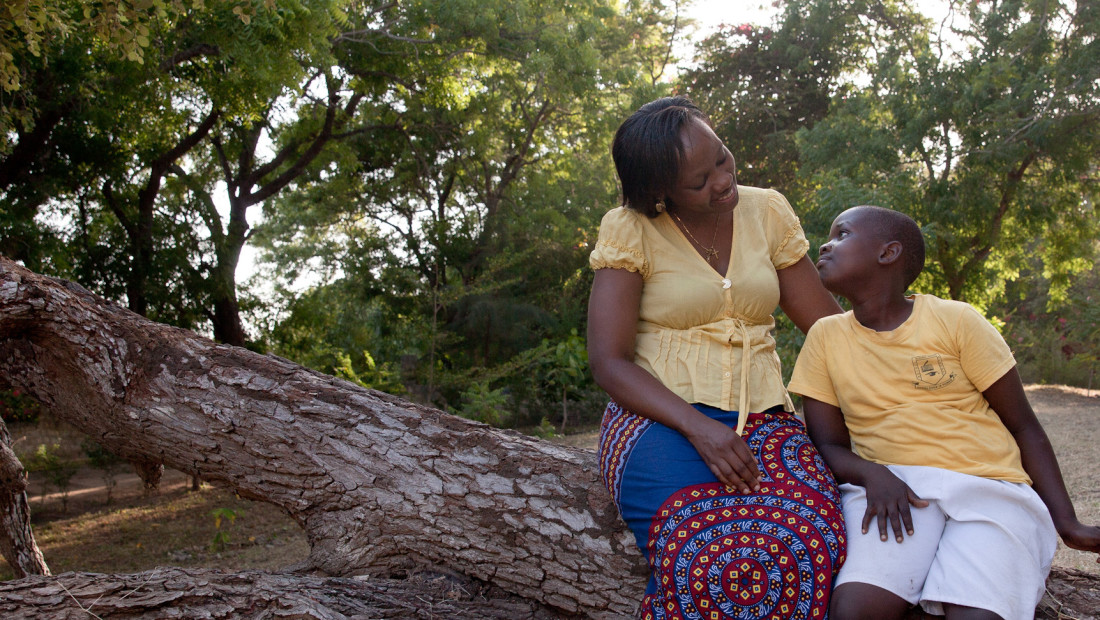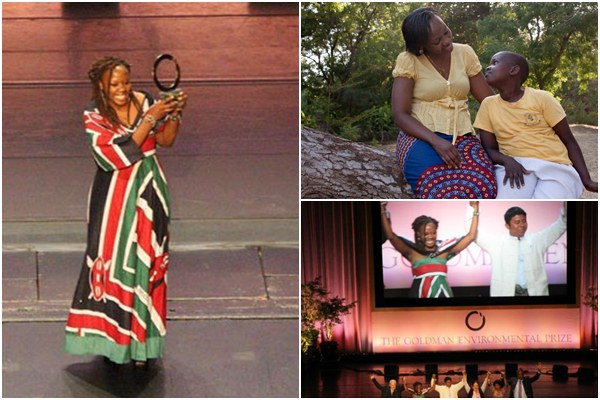36 years old Phyllis Omido is this year’s ultimate winner of the Goldman environmental prize for Africa.

Ms Phyllis Omido was among six recipients of the 2015 Goldman Environmental Prize, the world’s largest award for grassroots environmental activists.
She received Sh15.7 million ($175,000) in prize money and a trophy symbolising nature’s power and renewal on Monday.

Her award was in recognition of her campaign, resulting from her child’s sickness and the realisation that the illness was a result of lead poisoning that affected an entire community in the Changamwe area of Mombasa County.
As a result of her campaigns and community protests, the government shut down the factory responsible for emitting the dangerous poison.
Ms Omido, who founded the Centre for Justice, Governance and Environmental Action (CJGEA) received the award at a ceremony held at the San Francisco Opera House in the US. Over 3,000 people attended.
“I am elated,” she said after being crowned winner. “It was beyond my wildest dream to win.”
The mother of one was recognised for engaging the state on different levels as she campaigned to ensure that the Uhuru Owino community right to a safe environment was protected. She started her campaign in 2009 and sustained it for five years.
She said she was determined to bring change in the way industries treat people.
“I did not play the victim role. With the community that has been adversely affected and diagnosed with ailments arising from massive lead elements in their bodies, we pushed businesses to protect the environment and human rights,” she said.
As a result of her efforts, senators and officials from the Ministry of Health visited the area where about 10,000 families live to assess the conditions that they were living under.
Communicating through social media from the US, Ms Omido said: “I am humbled and honoured. This award gives us a chance to go to the court and seek accountability and Justice.”
She will continue to push for the cleaning up of the Uhuru Owino community environment and treatment and detoxification of the affected.
“The $75,000 will go direct to CJEA and the $100,000 to me and other projects,” she said.
Ms Omido’s fight for environmental justice came to the fore when her now Standard Three son, King David Jeremiah, who was breastfeeding at the time, was found with traces of lead in his blood after she breastfed him while she worked at the factory.

“My son was always sick and in hospital suffering from unknown diseases,” she said. Only much later did doctors establish that he was suffering from lead poisoning.
Credits: NationMedia
Discover more from ULIZA LINKS NEWS
Subscribe to get the latest posts sent to your email.



